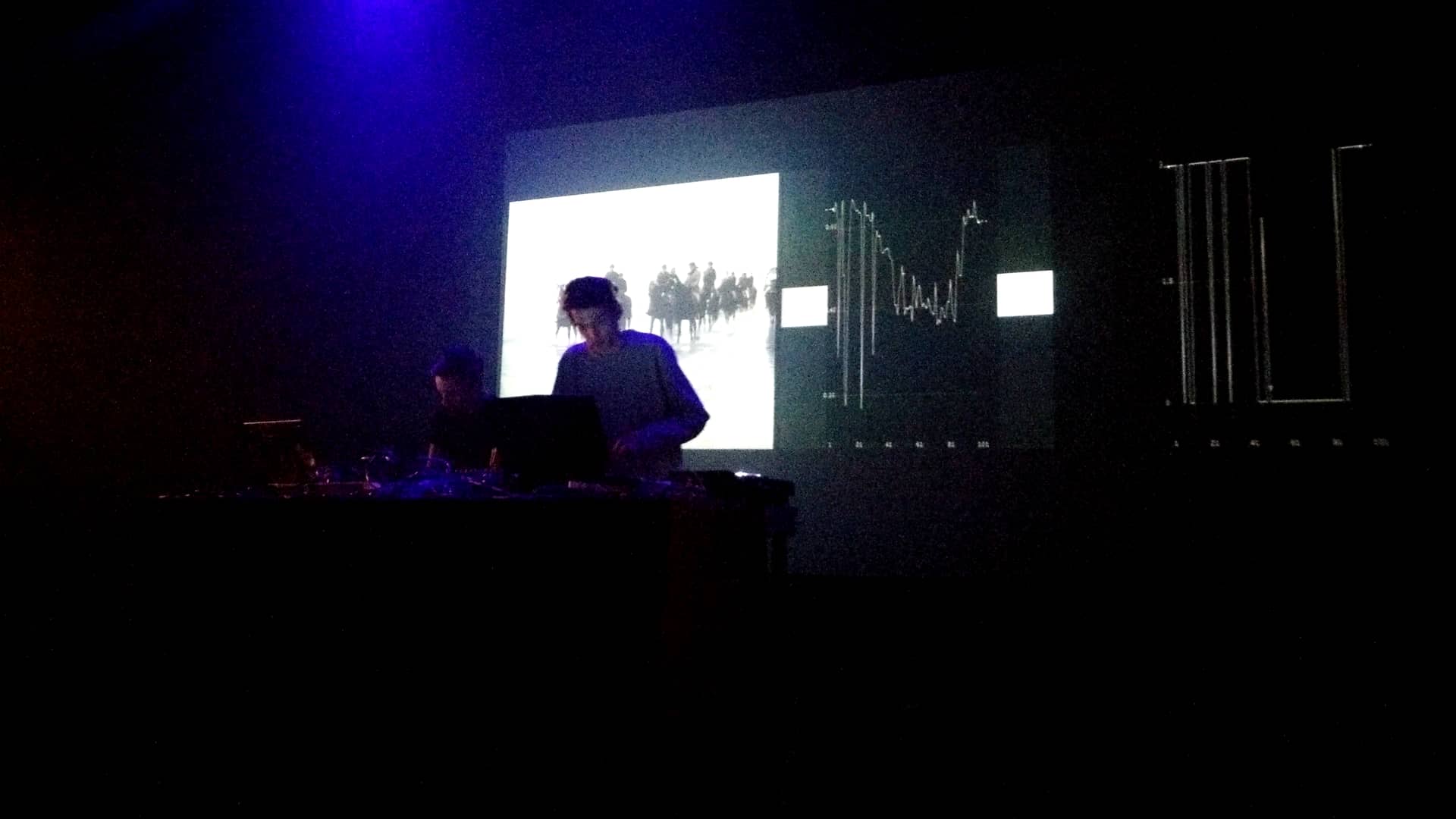This year’s Sonica festival appears to have an unofficial aquatic theme. Complementing the damp Glaswegian weather, the programme includes Aquasonic’s underwater singing, Kathy Hinde’s dripping ice blocks in an old swimming pool, and Shorelines’ theatrical exploration of the 1953 North Sea flood.
The live A/V show of Berlin-based Irish duo Lakker (Dara Smith and Ian McDonnell) then, is no exception. Archival footage exploring the Dutch relationship to water is remixed in time to Lakker’s live composition from the side of the stage. The footage is retrieved from the Netherlands Institute of Sound and Vision, following a trip the duo made to research the effect of the constantly rising sea levels on the country. From this came a pulsing industrial LP, Struggle and Emerge (R&S Records), which forms the backbone of the piece tonight.
As the show begins, sitting quietly in the audience seems a strange response to what feels like a 3am Berlin DJ set we should be drunkenly dancing to. However, as the hour progresses and I become more absorbed in the patterns, the sober focus we are giving to it feels more appropriate. Cycles form as heavy mechanical beats raise the anxiety level, only for the tension to be relieved with lighter synth melodies. It’s all technically simple – found sounds are EQed and pitched, with some reverb thrown in for good measure – but it’s effective in that it responds thoughtfully to the material instead of getting bogged down in process.
Often music accompanies video, but tonight it feels like the reverse. The grainy characters move to Lakker’s manipulations as the footage loops, slows and skips in time to the music. Some images are very affecting: an occupied car sinking, water-logged flood plains, a church that could be floating as we see only its roof. Despite that, one audience member is so taken by the rhythms that he keeps his eyes closed the whole time as he dances privately in his seat. It’s clear the music is driving the energy in the room.
The press release grandly claims that this piece “revolutionises how history and heritage can be absorbed.” I’m not sure that is true. It touches on several pertinent themes – climate change, memory, precarity – but the analysis could be sharper. However, it is a well-co-ordinated, technically refined and very enjoyable show that presents its research in an interesting way. Smith and McDonnell have clearly tried to engage productively in conversations we need to be having. Hopefully this artistic contribution is (if you’ll allow it) the tip of the iceberg.
